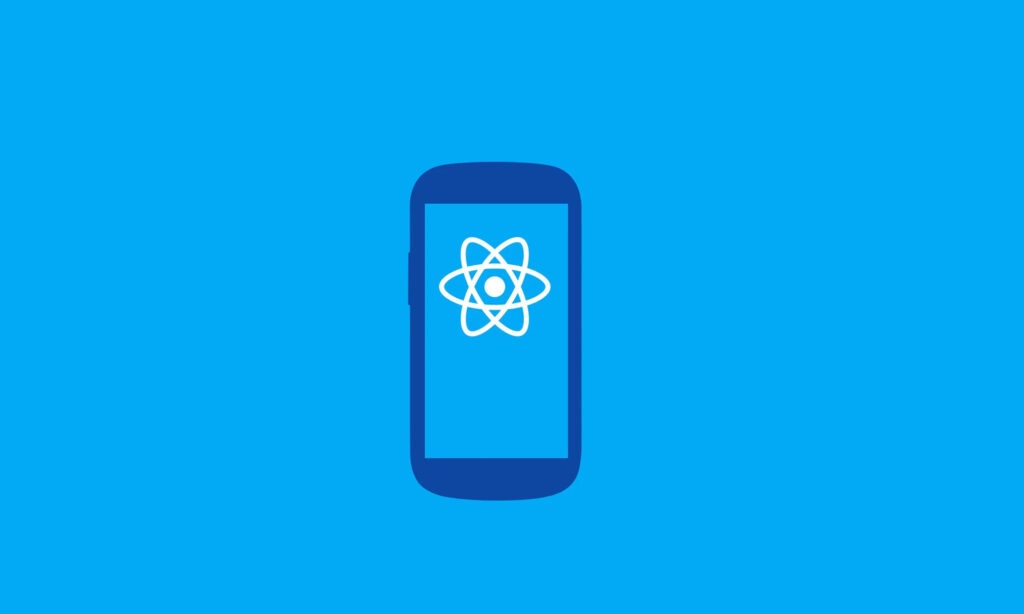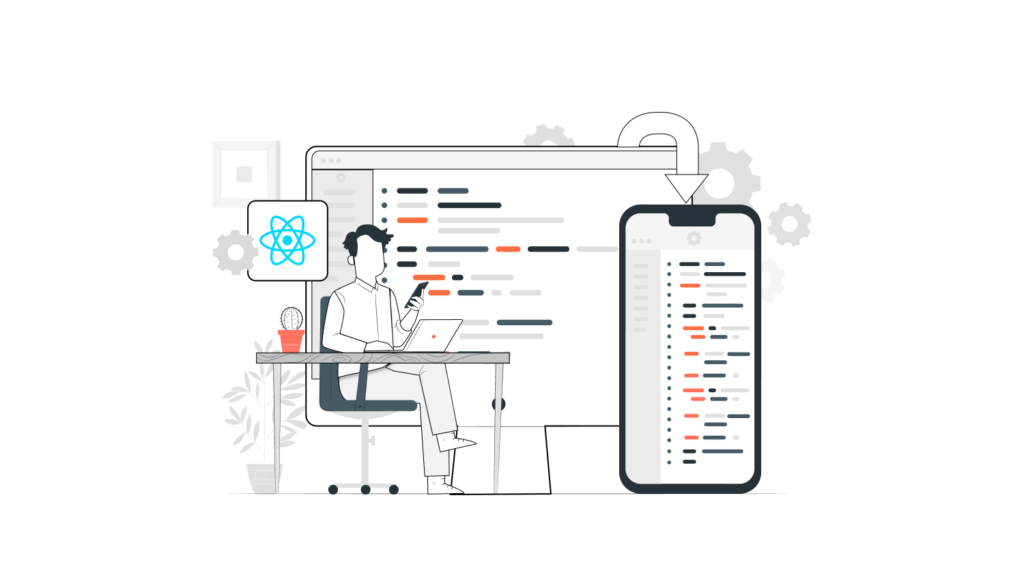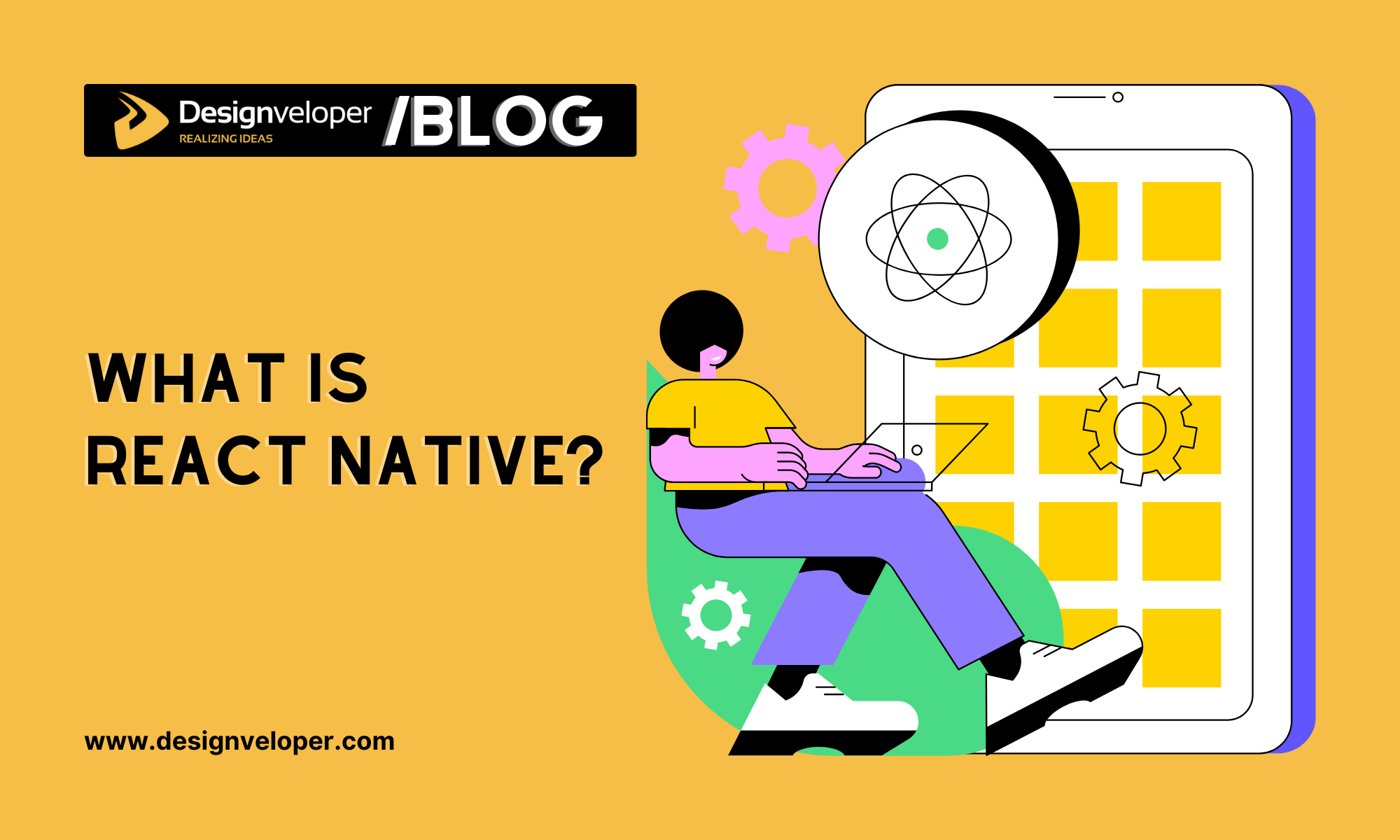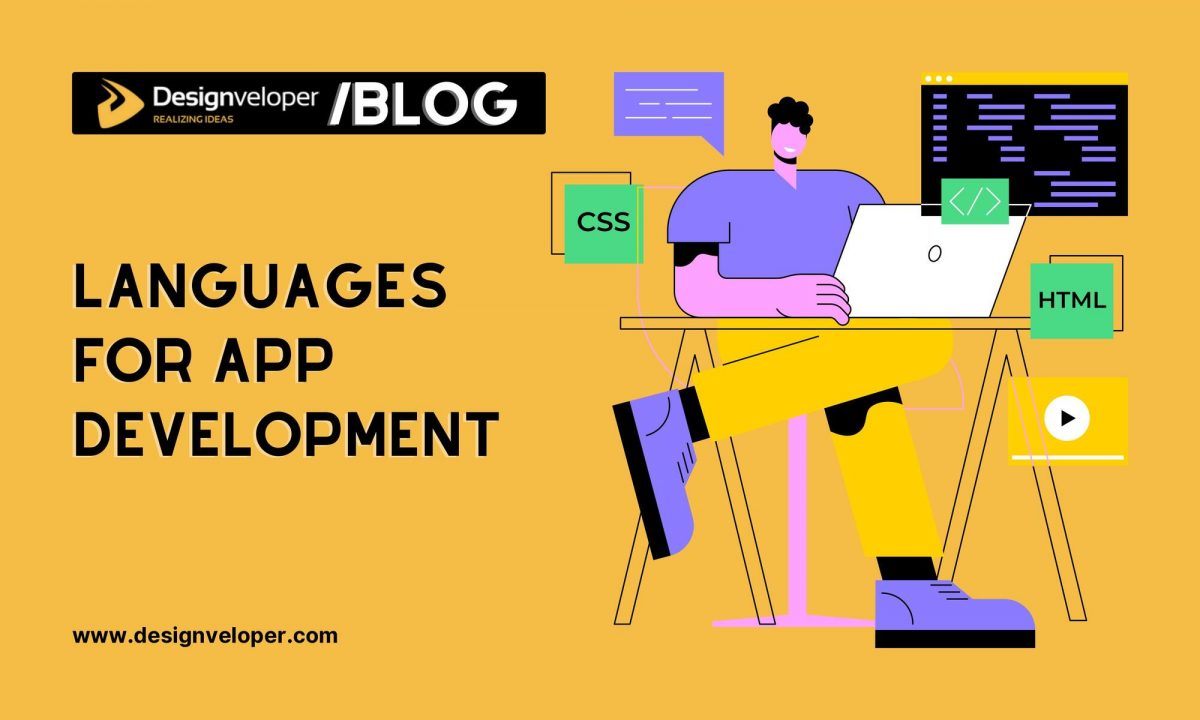React Native has been one of the most talked-about topics in the field of mobile app development for the past few years. It caused such a stir in the tech world because it made it possible to make mobile apps for both iOS and Android at the same time. But what is React Native, really?
In the first part of this article, let’s learn more about what React Native is and how it works.
What Is React Native?
1. The Definition
JavaScript is the framework for React Native, which lets developers make real mobile apps that run on both iOS and Android devices. It is built on React, which is a JavaScript package that Facebook uses to build user interfaces. However, it is designed for mobile platforms instead of browsers. To put it another way, web developers can now make “native” mobile apps using a common JavaScript library. Also, most of the code you write can be used on both Android and iOS. This makes it easy to make apps for both platforms at the same time using React Native.
React Native has been very successful for a number of reasons. Businesses that use it can write code once and then use it to power their iOS and Android apps. They save time and money by doing this. This makes a big difference in how much time and resources are used. Second, the mobile framework was built on top of React, which had been very successful. Third, the framework allowed front-end developers, who had only been able to work with web-based technologies up until that point, to make strong, production-ready apps for mobile platforms.

The History Of React Native
Mark Zuckerberg said in 2012 that the biggest mistake his company had made was betting too much on HTML. After the company switched to HTML5, the mobile app for Facebook’s mobile version stopped working and data was collected slowly. He promised that Facebook would soon make the mobile experience better.
On Facebook, Jordan Walke found a way for a background JavaScript thread to make user interface elements for iOS. This discovery eventually led to the creation of the React web framework. They decided that an internal hackathon would be the best way to improve this prototype.
After working on it for a few months, Facebook released the first version of the React JavaScript Configuration in 2015. Christopher Chedeau gave a technical talk where he talked about how React Native is used to making Facebook’s Group App and their Ads Manager App.
This is how React Native got started. At first, it was only made for iOS, but Facebook quickly added support for Android and then made the framework public in 2015. After only three years, it was already the second most popular project on GitHub. In 2019, it was still strong and came in sixth, with over 9,100 contributors.
Recommended reading: 11 Popular React Native App Examples in 2022
React vs. React Native
Both React and React Native is made up of mixtures of JavaScript and JSX. What makes them different is that JSX components use different syntax to render elements, while React and React Native use the same syntax. React uses HTML and CSS, while React Native makes it possible to use native user interface elements on mobile devices.
Facebook solved scalability problems using React, which was added to the Instagram app after in 2012. React led naturally to the creation of Facebook’s React Native, which is powered by React and was made by Facebook. It is a mobile framework that lets developers use JavaScript to make apps that work as well as native apps. In general, React is for building websites, while React Native, which doesn’t need HTML, is for making mobile apps.
Recommended reading: A Bird-Eye View of React vs React Native: Key Points in 2022
3 Advantages Of React Native

There’s no getting around the fact that React Native is one of the most popular front-end frameworks right now. If you’re still not sure if you should use this framework for your project, let’s talk about some of the reasons why you should.
1. Code Reusability
One of the best things about the framework is that it lets you use code you already have. This is a good sign that your applications will work well on many different platforms. Studies show that 90% of the native framework could be integrated so that the code could be used on many different operating systems.
If both your web app and your mobile app use React Native, you can reuse the code. This not only cuts down on the time for building the software, but it also uses parts of the open-source library that have already been built.
2. Knowledge Sharing
Using the framework’s features can cut down on the amount of time and money for making mobile apps. Software developers who can write React code can now make apps for the web, iOS, and Android.
Because engineers don’t have to be “silo” based on the target platform they are developing for, React Native lets your team iterate more quickly and share knowledge and resources in a more efficient way.
3. Pleasant Developer Experience
If you’ve developed for mobile platforms before, you might be surprised at how easy it is to start using React Native. The team worked hard to build powerful developer tools and useful error messages into the framework. As a result, using powerful tools is a natural part of the development process.
With React Native, you don’t have to rebuild your app for changes to take effect. Instead, you can hit Command+R to refresh your application like you would any other web page. This is because you don’t have to rebuild your app to see the changes you’ve made. The time you spend waiting for your app to develop can add up quickly, so React Native’s fast iteration cycle is beneficial.
Also, the framework gives you access to advanced tools for debugging and lets you report errors. If you know how to use the developer tools that come with Chrome or Safari, you’ll be glad to know that you can also use them for mobile development. In the same way, you can use any text editor you want to write JavaScript. React Native doesn’t require you to use Xcode to write for iOS or Android Studio to build for Android.
When Should You Use React Native?

When making an app for both iOS and Android, it should go without saying that you should use React Native. If you already know how to use JavaScript, this choice will be even better for you. In the best use case, using it is more efficient, easy to use, and cost-effective. Both apps for iOS and Android require a smaller number of developers to work on and in a much shorter amount of time.
React Native is a safe choice due to the support it has. The framework is supported by a community of people who work together to make it better every day. Also, because Facebook supports React Native, it will get regular updates. At the moment, it has gained a lot of support and a large number of Fortune 500 companies are taking advantage of it.
Also, there is no other framework that can compete with React Native when it comes to the quality of the user interface (UI) and user experience (UX) In some situations, applications made with this framework work better than those made with native programming.
FURTHER READING: |
1. Flutter vs React Native: Which One is Better for Business? |
2. 5 Mobile App Development Frameworks You Should Consider |
3. 5 Best App Builders to Help You Get an App Faster |
Conclusion
React Native is an excellent choice to think about if your project doesn’t need a complex interface or access to native functionality, and you only want to develop something for one platform. If you don’t have a lot of money, it is also a great choice.
In this way, if you want high-quality React Native development services that won’t break the bank, you might want to get in touch with us at Designveloper. As the best web development company in Vietnam, we have a team of expert developers who will do a good job on your projects at a lower cost.





















